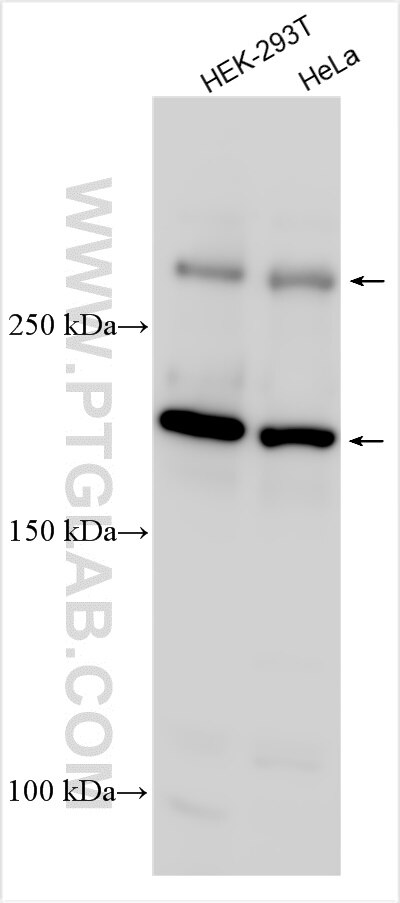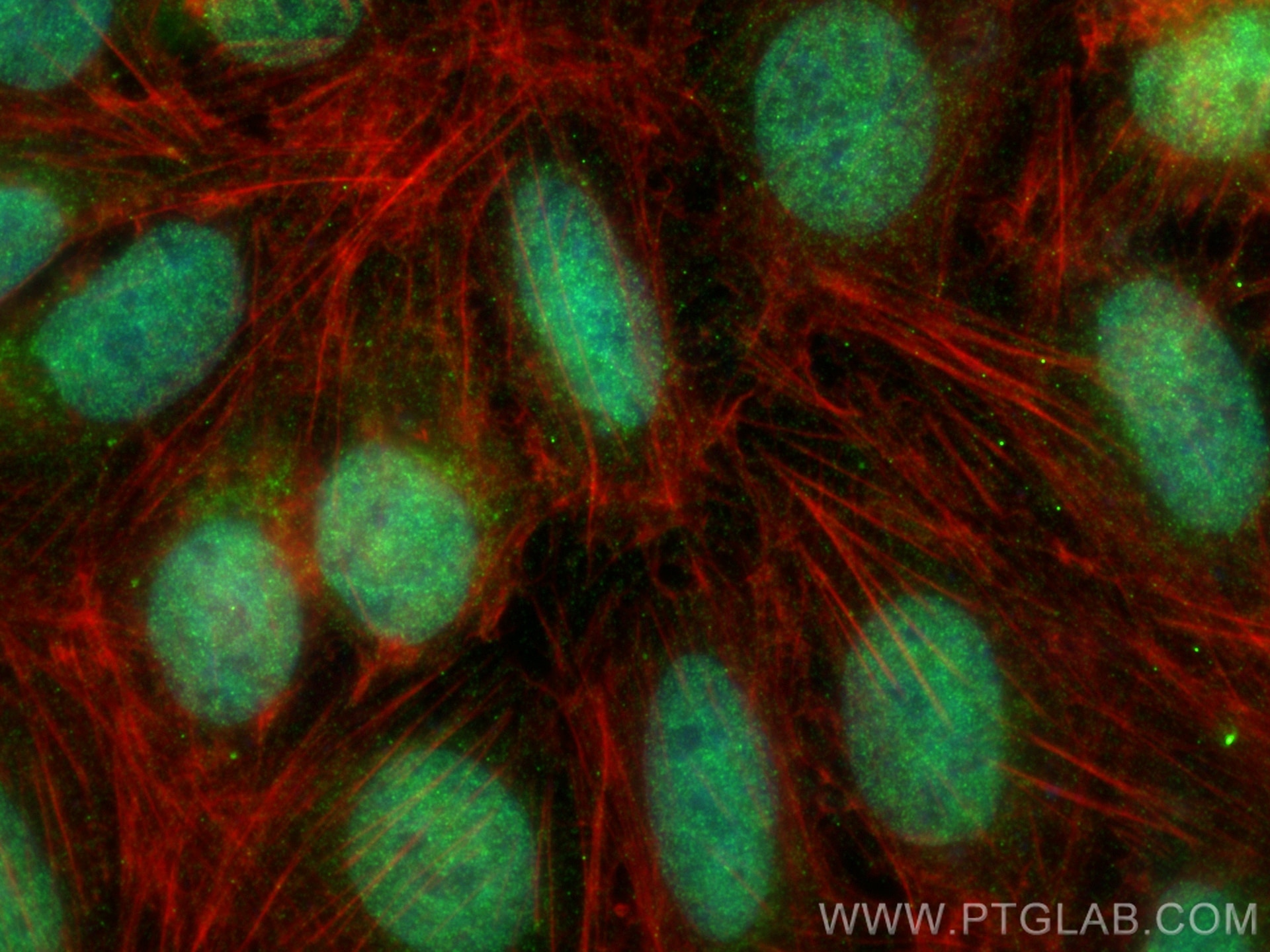Tested Applications
| Positive WB detected in | HEK-293T cells, HeLa cells |
| Positive IF/ICC detected in | U2OS cells |
Recommended dilution
| Application | Dilution |
|---|---|
| Western Blot (WB) | WB : 1:500-1:1000 |
| Immunofluorescence (IF)/ICC | IF/ICC : 1:50-1:500 |
| It is recommended that this reagent should be titrated in each testing system to obtain optimal results. | |
| Sample-dependent, Check data in validation data gallery. | |
Product Information
31396-1-AP targets MLL4 in WB, IF/ICC, ELISA applications and shows reactivity with human samples.
| Tested Reactivity | human |
| Host / Isotype | Rabbit / IgG |
| Class | Polyclonal |
| Type | Antibody |
| Immunogen | MLL4 fusion protein Ag35385 Predict reactive species |
| Full Name | myeloid/lymphoid or mixed-lineage leukemia 4 |
| Observed Molecular Weight | 180kDa;320kDa |
| GenBank Accession Number | BC009337 |
| Gene Symbol | MLL4 |
| Gene ID (NCBI) | 9757 |
| RRID | AB_3669963 |
| Conjugate | Unconjugated |
| Form | Liquid |
| Purification Method | Antigen affinity Purification |
| UNIPROT ID | Q9UMN6 |
| Storage Buffer | PBS with 0.02% sodium azide and 50% glycerol , pH 7.3 |
| Storage Conditions | Store at -20°C. Stable for one year after shipment. Aliquoting is unnecessary for -20oC storage. 20ul sizes contain 0.1% BSA. |
Background Information
MLL4, also known as KMT2B, which is an essential subunit of the H3K4 methylation complexes, regulates cell type-specific transcriptional programs through enhancer activation. Taspase 1 mediates cleavage of the MLL protein, generating 320 kDa N-terminal (MLL-N) and 180 kDa C-terminal (MLL-C) fragments (PMID: 24213472).
Protocols
| Product Specific Protocols | |
|---|---|
| WB protocol for MLL4 antibody 31396-1-AP | Download protocol |
| IF protocol for MLL4 antibody 31396-1-AP | Download protocol |
| Standard Protocols | |
|---|---|
| Click here to view our Standard Protocols |





